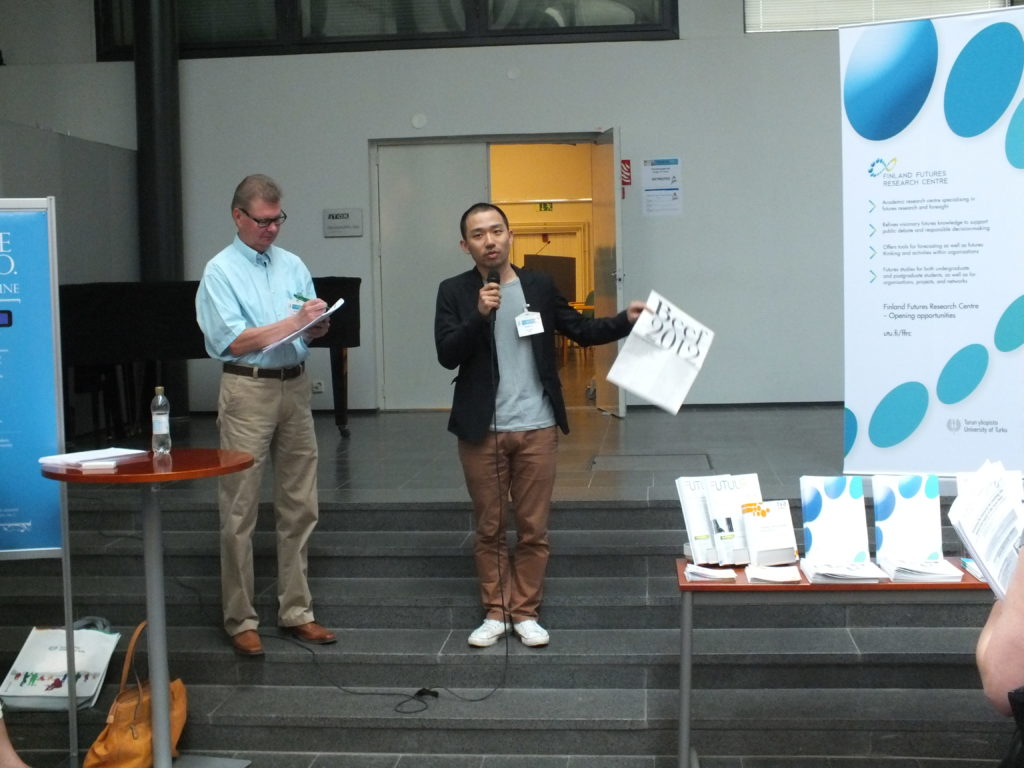
One particularly interesting talk I had was with Birgit Busicchia, a PhD candidate at Macquarie University in Sidney researching the dimensions of food security policy in developed economies. Her research was a comparative analysis between Australia, the UK, and France of the dimensions of their respective food systems and policy environments. It was carried out in the tradition of political economy with historical institutionalism as an analytical framework to establish if there is a notion of food policy regime emerging from the research.
Some quotations from her conference abstract:
Is it reasonable to assume that different political economy contexts may have different futures of food? This comparative analysis proposes to explore how political economic variables impact upon and shape current and future food economies of selected developed countries. In view of the interplay between political systems and food systems, it subsequently attempts to imagine their respective futures. Australia, the United Kingdom and France present significant variations as well as similarities to allow for assessing how national political structures, modes of interest mediation and varieties of capitalism construct their respective present and future food economies. Central to this analysis is the question of whether market based instruments and mechanisms, so pivotal to liberal market economies, can be politically enduring as well as being able to deliver adequate social, environmental and economically viable outcomes to the many challenges facing the national food economies. […] This analysis aids our understanding of the situation at present by identifying the principles underpinning the respective national food security discourses and gleans insights into the contested future of food in these wealthy nations.
Institutions can be the cause and remedies to economic, social, and environmental shocks and their associated problems. For instance, the protection of the farmer’s rights have enabled small to medium size farming entities to remain active within the French agricultural sector. In contrast, Britain’s market based mechanisms regulating land ownership have pushed agricultural land prices to unaffordable levels, thus prohibiting entries of new players in the agricultural sector. Today in France, about half of the population live in rural or near rural area working directly and indirectly in agriculture whereas in Australia most of farming is done by the gigantic corporations and only 2% of the population reside in rural area.
You can see Busicchia’s recent writings on The Conversation here.
오히려 젊은 리서처들이 발제하는 워크숍 세션과 포스터 세션에서 재미있는 리서치를 더 많이 볼 수 있었습니다. 그중 제 눈을 끈 리서치는 호주 Macquarie 대학 박사과정에 있는 Birgit Busicchia가 발표한 호주/영국/프랑스의 음식환경과 정책의 비교분석이었는데요, Birgit은 역사적 제도주의를 통해 정치 경제적으로 유의미한 식품정책체제를 발견하고자 했습니다.
‘제도와 기관은 경제, 사회, 환경적 충격이나 문제의 원인도 해결법도 될 수 있다’고 Birgit은 주장합니다. 예를 들어, 농부의 권리를 꾸준히 강화해 온 프랑스에선 여전히 중/소농이 활발한 반면, 영국의 시장중심의 토지 소유제는 감당할 수없는 수준으로 농지 가격을 올려놓아 개인이 새로이 농업에 진출하는 것을 막습니다. 또한 오늘날 프랑스 인구의 반 정도가 직/간접적으로 농업에 종사하며 시골에 살지만, 호주의 경우 대기업 중심의 농업으로 인해 인구의 2%만이 농업 지역에 거주하고 있습니다.
Birgit은 The Conversation에 주기적으로 칼럼을 올리고 있습니다.
Leave a Reply